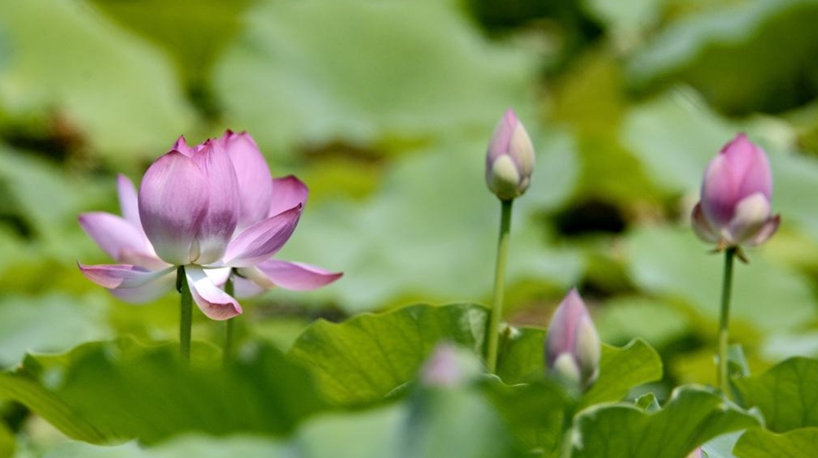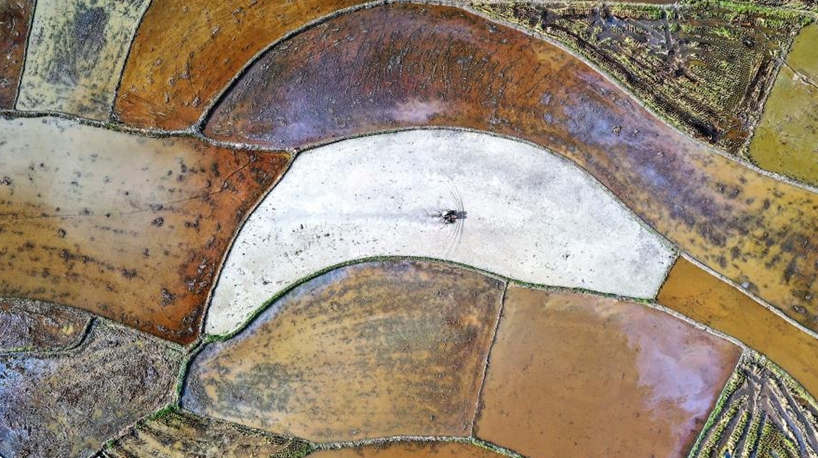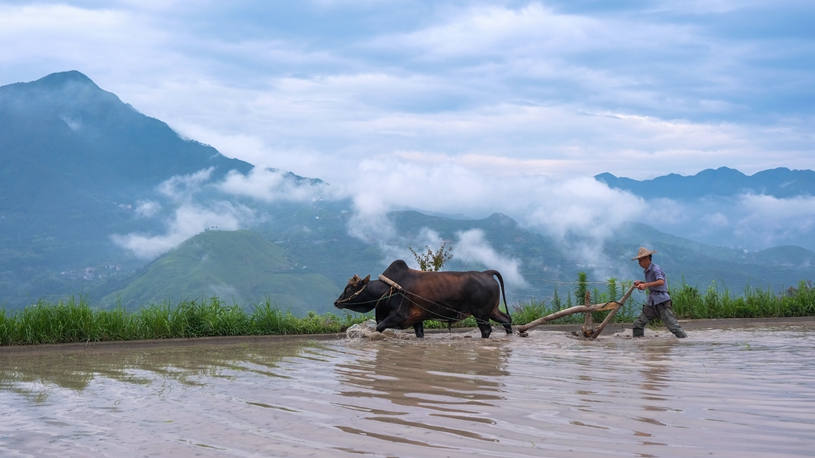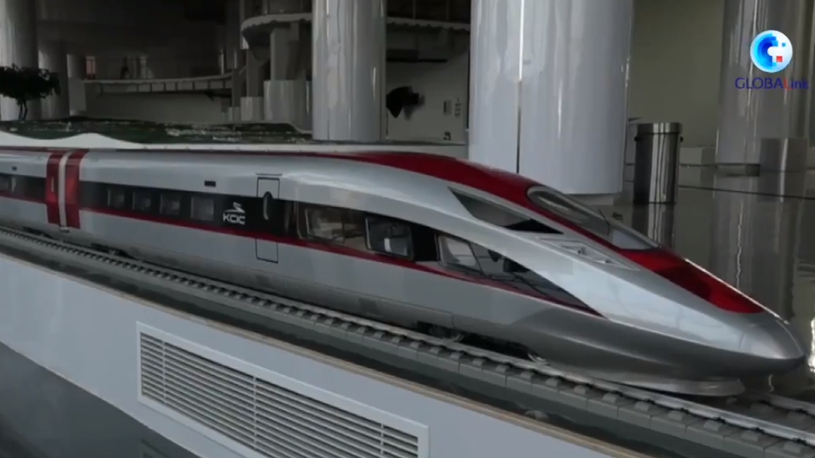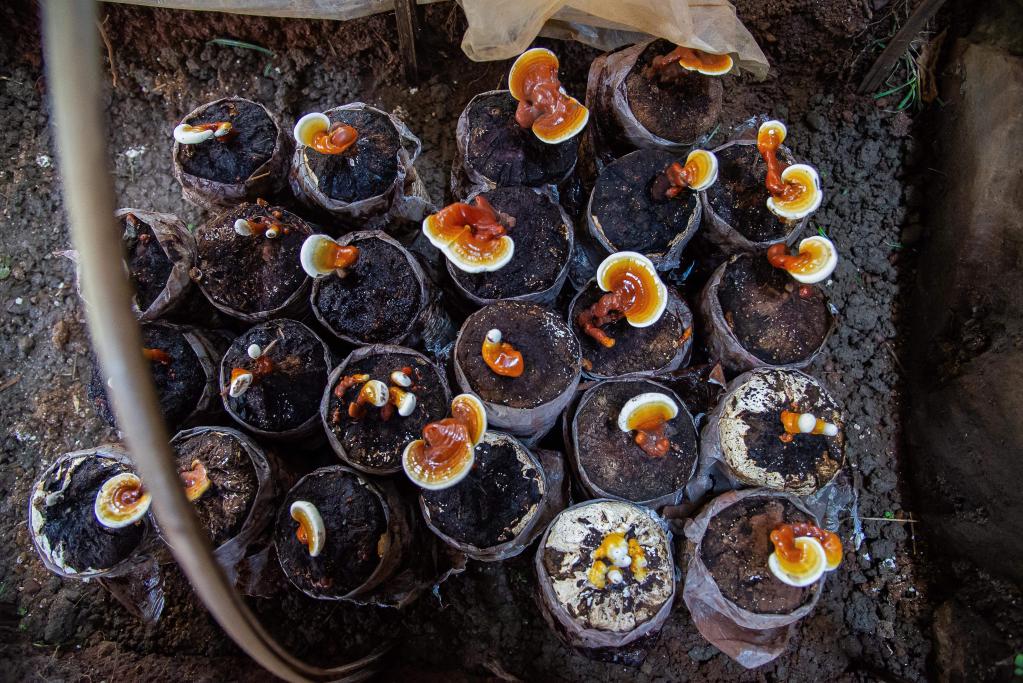
Photo taken on May 31, 2022 shows fungi cultivated by a Non-Governmental Organization called "International NGO Centrolive" in Bangui, Central African Republic. (Xinhua/Luo Yu)
With Chinese expertise, farmers in the Central African Republic are making a fortune through mushroom growing.
BANGUI, July 27 (Xinhua) -- In the Central African Republic (CAR), Irene Dombeti counts herself among the lucky few with knowledge of how to grow mushrooms sustainably and technologically.
She spent one and half months in China studying edible and medicinal mushroom technology. When she returned to CAR, she realized that people were less interested in using technology to grow mushrooms.
"They said that mushroom grows naturally, so they are not interested in mushroom technology," Dombeti said.
Then Chinese specialists arrived and introduced the Juncao technology which refers to planting a grass named Juncao with strong adaptability to the environment and rich nutrition while using processed Juncao grass to cultivate edible and medicinal fungi and raise poultry and livestock, said Chen Kehua who introduced the project in CAR.
Chen held 16 training courses on Juncao with 613 trainees and succeeded to involve five cooperatives in mushroom cultivation and four cooperatives in raising livestock with Juncao grass.
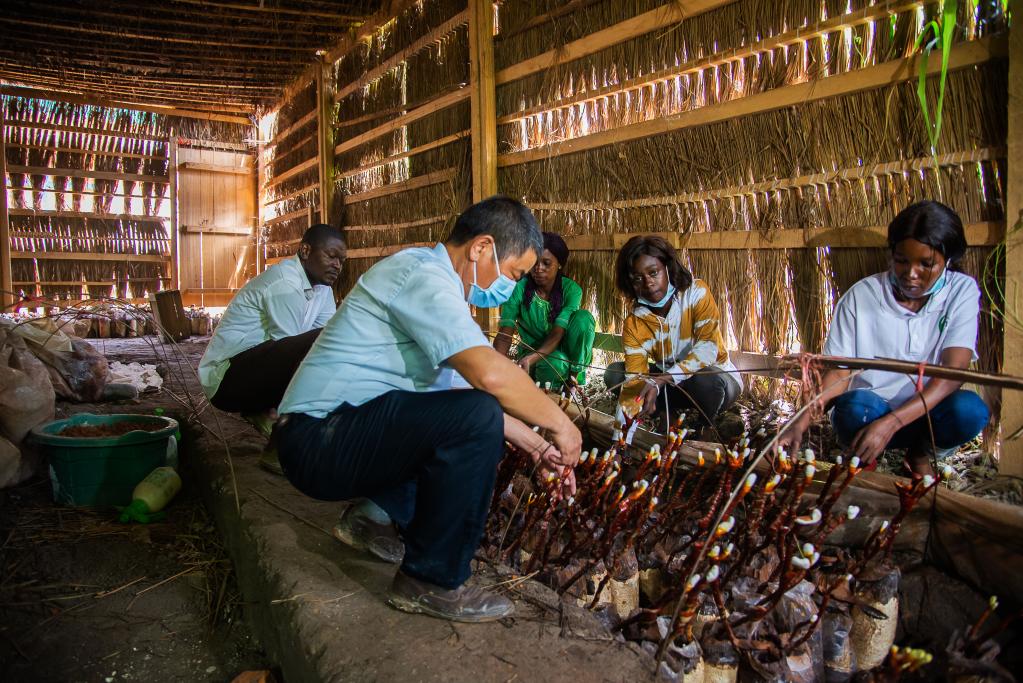
A Chinese expert cultivates fungi with local people in Bangui, Central African Republic, on June 1, 2022. (Xinhua/Luo Yu)
The team has planted 3 hectares of Juncao grass while helping local farmers to plant 10 hectares.
Farmers in the country realized that grass, which is trivial and even negligible for most people, could change their lives and country.
"Gradually in seeing what we are doing, they are now starting to adapt to mushroom cultivation because the mushrooms that we are growing here with technology are good mushrooms, which taste good and then it attracts people, they are now much interested," added Dombeti who now works as laboratory technician of the Institute for Agricultural Research in CAR.
Fatime Abba Rekya, 40, an agronomist and mushroom producer, was among the first to develop interest in the Chinese-invented technology.

Fatime Abba Rekya, 40, an agronomist and mushroom producer, checks the mycelium bags on the outskirts of Bangui, Central African Republic, on May 31, 2022. (Xinhua/Luo Yu)
With the support of Chinese specialists, Abba Rekya grew mushroom using the Juncao technology and began commercializing the product online.
She said the mushroom was so tasteful that demand became very high.
"We are doing our best to gradually settle the orders we have," said Abba Rekya, adding that they have succeeded to train 20 women in mushroom cultivation.
The Juncao technology has contributed to job creation, food security and generated income for rural communities in CAR and has played an important role in tackling malnutrition in the country, said Rekya.
"It's a business of hope, because there are restaurants and hotels here, and we can dry off and export mushrooms and do a lot of things around it. For young people who have not gone to school, we can create jobs for them, for the women who are at home, we can also create jobs for them," she added.
When the Chinese introduced the Juncao technology in CAR, Jean-Christian Ngakoutou-Patasse, who runs a Non-Governmental Organization called "International NGO Centrolive", was quick to forge partnerships with them.
"We built the mushroom house and Juncao technicians brought us the mycelium that allowed us to develop this technology," he said.
Thanks to the partnership, about a hundred people were trained in mushroom cultivation.
"We are a country coming out of a war, and today many young people are neglected. Through this training, we will help them to channel themselves towards a technology which allows them to do a lot more development so that they can support themselves," Ngakoutou-Patasse said.
The promotion of the Juncao technology in impoverished communities will help people get rid of poverty, he said, expressing gratitude to China.
"China is already giving us a lot of support, that's very good, we are counting on this cooperation to evolve together and help the people of the Central African Republic," he said.
"In our country we like mushrooms. We don't know how to plant mushrooms but thanks to the Juncao project we know how to grow mushrooms to eat. We hope that this Juncao project will spread throughout the CAR," added Iwano, a student in agriculture.
Finding solutions to human survival and development through technologies, the Juncao technology is a vivid practice of China to build a community with a shared future for mankind.
"In order to better popularize the Juncao technology, our team is building an 854-square-meter production workshop. We will continue to popularize this technology, train more locals and domesticate the local wild edible and medicinal fungi to help ease the food shortage problem in CAR," said Chen. ■




